Table of Contents
ToggleIn a world where data reigns supreme, cloud computing has become the superhero every business needs. Imagine harnessing the power of the cloud without needing a cape or a PhD in computer science. That’s where a cloud computing bootcamp swoops in to save the day! These intensive programs transform eager learners into cloud-savvy professionals faster than you can say “serverless architecture.”
Whether someone’s a tech novice or a seasoned pro looking to level up, a cloud computing bootcamp offers the perfect blend of knowledge and hands-on experience. With the demand for cloud expertise skyrocketing, attending one of these bootcamps is like getting a VIP pass to the future of technology. So why not dive into the cloud and discover a career that’s as exciting as it is rewarding? After all, who wouldn’t want to work in a realm where data floats in the sky?
Overview of Cloud Computing Bootcamp
Cloud computing bootcamps offer structured learning pathways designed for various skill levels. These programs provide foundational knowledge in cloud technologies such as AWS, Azure, and Google Cloud. Students gain hands-on experience in deploying applications, managing services, and implementing security protocols.
Intensive courses typically span a few weeks to a few months, depending on the bootcamp format. Students often participate in projects that simulate real-world scenarios, allowing them to apply theoretical concepts. Networking opportunities with industry professionals frequently accompany these bootcamps, enhancing job prospects upon completion.
Instructors usually have extensive industry experience, providing insights into current trends and technologies. Participants complete assessments and capstone projects to demonstrate their proficiency towards the end of the program. Many bootcamps also include resume workshops and interview preparation sessions, ensuring candidates are ready for job searches.
Job placement assistance remains a key feature of most cloud computing bootcamps. Employers frequently seek individuals with practical skills, making bootcamp graduates attractive candidates. With the rapid growth of cloud adoption in businesses, these programs play a crucial role in bridging the skills gap.
The focus on practical applications and industry-relevant skills positions bootcamp graduates for success. Cloud computing remains a critical area in technology, and the demand for skilled professionals continues to rise. Enrolling in a bootcamp can lead to opportunities in various roles, including cloud engineer, DevOps specialist, and solutions architect.
Benefits of Attending a Cloud Computing Bootcamp

Attending a cloud computing bootcamp offers numerous advantages, significantly enhancing career prospects in a growing field.
Hands-On Experience
Participants engage in projects that reflect real-world challenges. This practical experience helps solidify theoretical knowledge, enabling a deeper understanding of cloud technologies. Additionally, bootcamps utilize platforms like AWS, Azure, and Google Cloud, providing exposure to in-demand tools. Learning by doing allows students to develop essential skills for deploying applications and managing services. Completing hands-on projects increases readiness for immediate contributions in tech roles. Graduates leave the bootcamp confident in their abilities and equipped with a portfolio showcasing their work.
Networking Opportunities
Networking forms a vital part of the bootcamp experience. Participants meet industry professionals through workshops, guest lectures, and events. Building connections with experienced mentors opens doors to job leads and collaboration opportunities. Interactions with peers create a supportive environment fostering shared learning and growth. Graduate alumni networks often provide ongoing support, enhancing career advancement. Engaging with the tech community expands knowledge and awareness of emerging trends in cloud computing. Ultimately, these networking opportunities play a crucial role in shaping successful careers in technology.
Curriculum and Structure
Cloud computing bootcamps feature a comprehensive curriculum designed to equip participants with essential skills and knowledge. Programs typically cater to various skill levels, ensuring both beginners and experienced professionals can benefit.
Core Topics Covered
Core topics include cloud architecture, service models, and deployment strategies. Participants learn to work with leading platforms such as AWS, Azure, and Google Cloud. Training emphasizes hands-on experience, focusing on practical applications like building, deploying, and managing cloud services. Security protocols essential for cloud environments receive significant attention. DevOps practices and automation tools play a critical role, preparing graduates to thrive in dynamic tech landscapes.
Duration and Schedule
Bootcamp durations generally range from a few weeks to several months, depending on the program’s intensity. Full-time options provide immersive experiences, while part-time tracks accommodate working professionals. Schedules often feature daily classes, weekend workshops, and project collaboration sessions. Flexible arrangements maximize accessibility for participants, enabling them to balance learning with personal commitments. Regular assessments and real-world projects reinforce learning, ensuring graduates emerge ready for impactful careers in cloud computing.
Choosing the Right Cloud Computing Bootcamp
Selecting the right cloud computing bootcamp involves evaluating several crucial factors.
Factors to Consider
Cost varies significantly among bootcamps. Some programs may charge several thousand dollars, while others offer lower fee structures. Duration plays a vital role as bootcamps can last from a few weeks to several months. Curriculum content should align with specific career goals, covering essential topics like cloud architecture, security, and DevOps practices. Reviews and testimonials from past participants provide insights into the quality of education and job placement success rates. Class size influences the level of personal attention received; smaller cohorts often allow for more direct interaction with instructors. Finally, ensure that networking opportunities are available, allowing engagement with industry professionals to foster connections.
Top Bootcamps to Explore
Consider a variety of reputable bootcamps when searching for options. General Assembly offers immersive programs and a robust placement network, enhancing job readiness. Springboard combines mentorship with project-based learning, focusing on personalized instruction. Udacity provides self-paced courses in cloud computing that benefit those with busy schedules. Thinkful supports live mentoring sessions to tailor the learning experience. Ironhack emphasizes hands-on projects, allowing participants to gain practical experience efficiently. Each bootcamp offers unique features, helping individuals find the right fit for their specific needs and career aspirations.
Cloud computing bootcamps serve as a vital stepping stone for individuals looking to thrive in the tech industry. With hands-on training and real-world projects, these programs equip participants with the skills needed for various roles in cloud computing.
Networking opportunities further enhance the learning experience, connecting graduates with industry professionals and potential employers. As businesses increasingly adopt cloud technologies, the demand for skilled professionals continues to rise.
Investing time in a cloud computing bootcamp not only opens doors to exciting career paths but also positions graduates at the forefront of a rapidly evolving field. Embracing this opportunity can lead to a successful and fulfilling career in technology.




